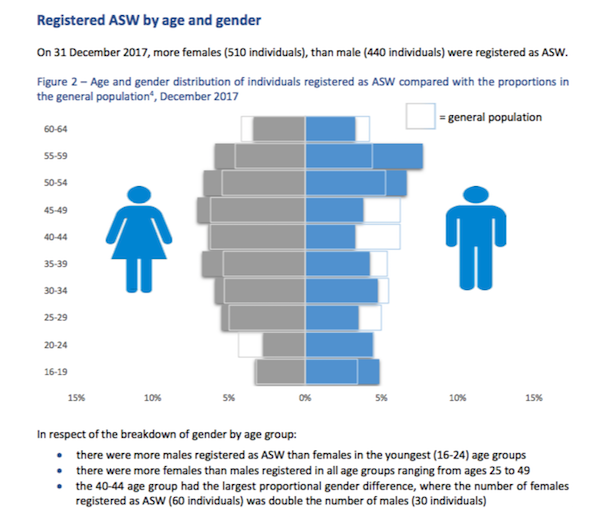

Job seeker numbers have dropped in Jersey to 950, the lowest figure since September 2009.
The number of people registered as 'actively seeking work' (ASW) at the end of 2017 was 330 lower than the end of 2016. The figures released by the Statistics Unit show that there is little change from the previous quarter.
On a seasonally adjusted basis the total number of people registered as ASW on 31 December 2017 was essentially unchanged compared with the end of the previous quarter. Read the full report here: https://t.co/5dp8ny8nbJ pic.twitter.com/5IqgjJpdKq
— Jersey Stats Unit (@JsyStats) January 11, 2018
Of the 950 people:
230 have been registered as actively seeking work for over twelve months
310 were classified as 'underemployed', working a job that is either part-time or doesn't fully use their skills
840 are receiving Income Support

Pictured: The latest report from the Statistics Unit shows there were 510 females and 440 males actively seeking work.
The report also shows the make-up of job seekers in the island, with more females looking for employment than males.
Women dominated each age category between 25-49 years. Males were more prominent in the youngest (16-24) group.
The 40-44 age group saw the biggest difference between the genders, with females doubling the number of men.
Commenting on the latest 'ASW' figures, Social Security Assistant Minister, Deputy Graham Truscott, said: “I’m delighted to see another successful year for Islanders getting back into work, and the latest unemployment figures show just how successful this has been. The Back to Work team have continued their hard work building strong relationships with local businesses and we are particularly grateful to those who took advantage of the help that is available to them through the Back to Work Recruitment service.
“Our paid training incentives, offered through the year, have supported growth, together with specific skills-building workshops, to allow employers to take advantage of new talent. For jobseekers, these incentives are vital opportunities to try something new and to learn new skills or refresh old ones. For many people, this also means becoming less reliant on Income Support and becoming more financially independent.”
Comments
Comments on this story express the views of the commentator only, not Bailiwick Publishing. We are unable to guarantee the accuracy of any of those comments.